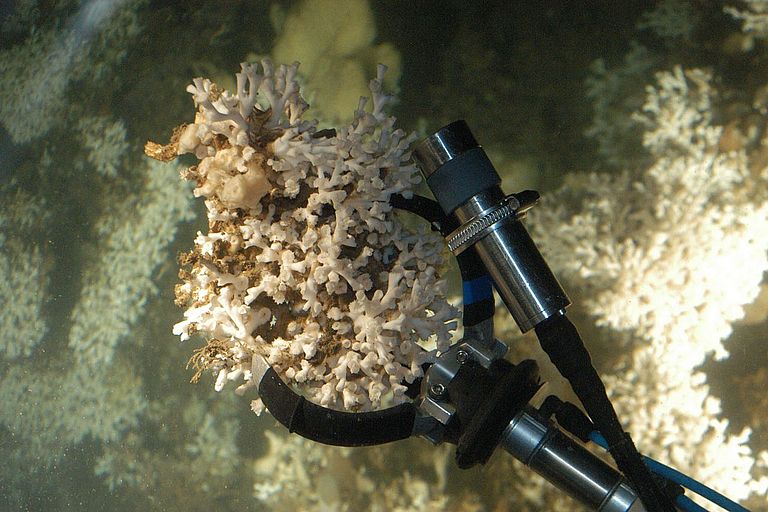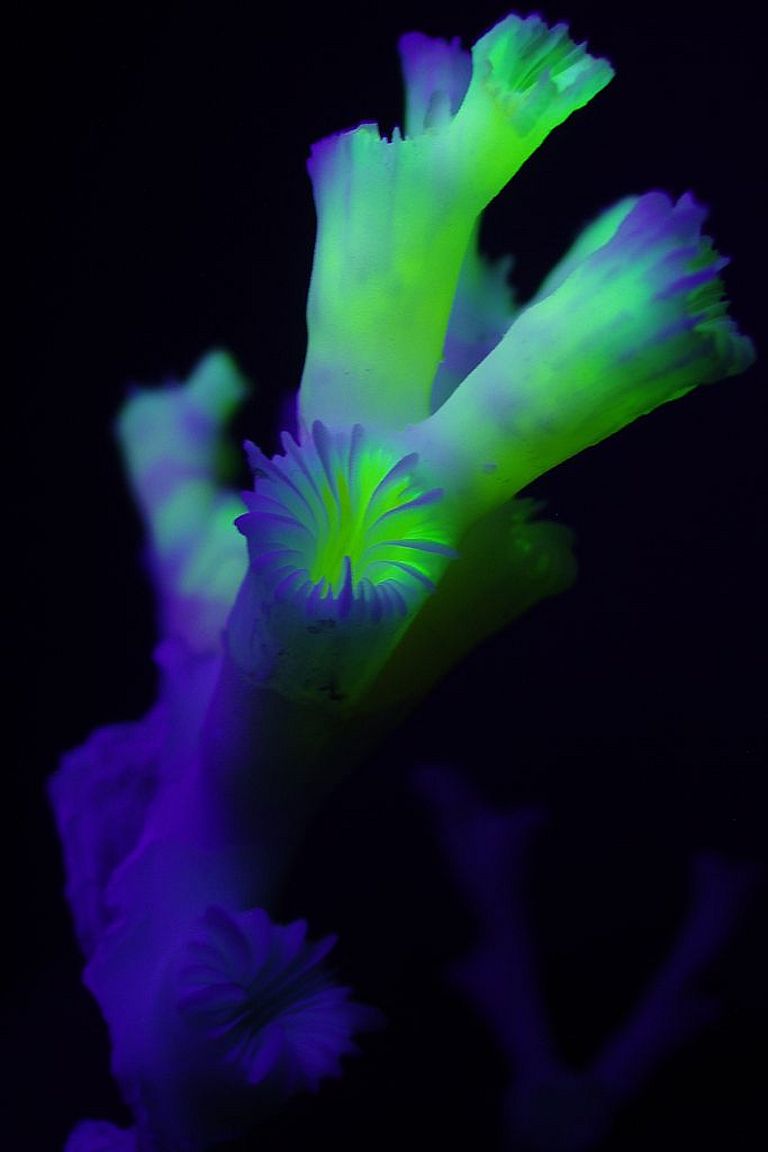BIOACID
September 14, 2009 / Kiel. Carbon dioxide emissions from the burning of fossil fuels are not only affecting our atmosphere, they are also changing our oceans on a global scale. Only a few years ago, marine scientists first registered a shift in the chemistry of seawater that raised their concern. The oceans, habitat of the largest continuous ecosystem on our planet, were becoming more acidic. Ongoing studies are demonstrating alarming consequences for many marine life forms, from tiny plankton, molluscs, fish, coral reefs on up to whales. Many species will be challenged in their very survival. Under the umbrella of the new research programme BIOACID, a group of scientists led by the Leibniz Institute of Marine Sciences (IFM-GEOMAR) in Kiel, are dedicating fact-finding missions over the next three years towards a better understanding of ocean acidification and its repercussions for life in the sea.
BIOACID – the new research programme stands for Biological Impacts of Ocean ACIDification. The German Federal Ministry of Education and Research (BMBF) is funding this high-profile focus in the marine sciences with a sum of 8.5 million Euros. More than 100 scientists and technicians from 14 German research institutes and universities began their work in the new programme on September 1st. Prof. Ulf Riebesell, marine biologist at IFM-GEOMAR and coordinator of the joint project, is looking forward to the challenge: “The funding of BIOACID demonstrates the emphasis Germany places on understanding the effects of climate change on the oceans. We are in the fortunate position of carrying research in the field of ocean acidification to new dimensions and are very excited about the prospects ahead.”
Today, there is no doubt that anthropogenic (man-made) carbon dioxide is being taken up by the oceans on a large scale, causing them to become more acidic. Changes in the acidity of seawater have occurred repeatedly over geologic time scales, but the rate of acidification caused by fossil fuel emissions in modern times is alarmingly high. Scientists fear that marine species subjected to this dramatic change in their environment will not have time to adapt, leading to detrimental effects on individual species and entire ecosystems. Coral reefs are a prime example. Under more acidic conditions, the organisms will no longer be able to build their calcareous skeletons and will literally dissolve in certain areas of the oceans in the near future. The consequences of ocean acidification will also be felt by humans: from fisheries to tourism, the oceans provide the foundation of economies in many parts of the world. The loss of coral reefs, both prime tourist attractions and home to many fish species, will even affect multiple economies.
In the framework of BIOACID, marine biologists, chemists, and physicists will work together with molecular biologists, palaeontologists, medical researchers, and mathematicians to investigate various aspects of ocean acidification. In the field of marine technology, engineers will develop precise analytical techniques. The research activities will focus on the North and Baltic Seas, as well as on regions in which marine ecosystems are most affected by ocean acidification, such as the Polar Regions and the Tropics. BIOACID has initially been funded for three years.
The BIOACID research community will cooperate closely with their colleagues in other countries such as the United Kingdom and the USA, which are also developing national research programmes with a focus on ocean acidification. Ulf Riebesell outlines the plans for future research in his field: “The changes we are seeing are of such relevance for marine life worldwide, that we would like to move forward in a concerted effort to develop complementary research programmes.” German scientists have also played a leading role in the development and implementation of the European Project on OCean Acidification entitled EPOCA. It is not surprising that Germany takes a leading role in this field of research on a national level. In 2006, the German Advisory Council on Global Change (WGBU) highlighted the risks of ocean acidification to marine ecosystems in a special report entitled: “The Future Oceans – Warming Up, Rising High, Turning Sour”.
Contact:
Dr. Andreas Villwock (Public relations), Phone: +49-431 600-2802, avillwock@geomar.de




